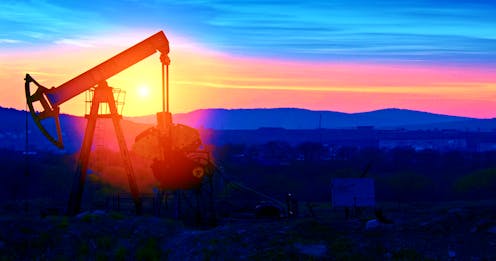Australia is about to be hit by a carbon tax whether the prime minister likes it or not, except the proceeds will go overseas
- Written by Peter Martin, Visiting Fellow, Crawford School of Public Policy, Australian National University

Ten years ago, in the lead-up to Australia’s short-lived carbon price[1] or “carbon tax” (either[2] description is valid), the deepest fear on the part of businesses was that they would lose out to untaxed firms overseas.
Instead of buying Australian carbon-taxed products, Australian and export customers would buy untaxed (possibly dirtier) products from somewhere else.
It would give late-movers (countries that hadn’t yet adopted a carbon tax) a “free kick[3]” in industries from coal and steel to aluminium to liquefied natural gas to cement, to wine, to meat and dairy products, even to copy paper.
It’s why the Gillard government handed out free permits to so-called trade-exposed industries, so they wouldn’t face unfair competition.
As a band-aid, it sort of worked. The firms with the most to lose were bought off.
But it was hardly a solution. What if every country had done it? Then, wherever there was a carbon tax (and wherever there wasn’t), trade-exposed industries would be exempt. The tax wouldn’t do enough to bring down emissions.
We are about to face carbon tariffs
The European Union has cottoned on to the imperfect workarounds introduced by countries such as Australia, and is about to tackle things from the other direction.
Instead of treating foreign and local producers the same by letting them both off the hook, it’s going to place both on the hook.
It’s about to make sure producers in higher-emitting countries such as China (and Australia) can’t undercut producers who pay carbon prices.














